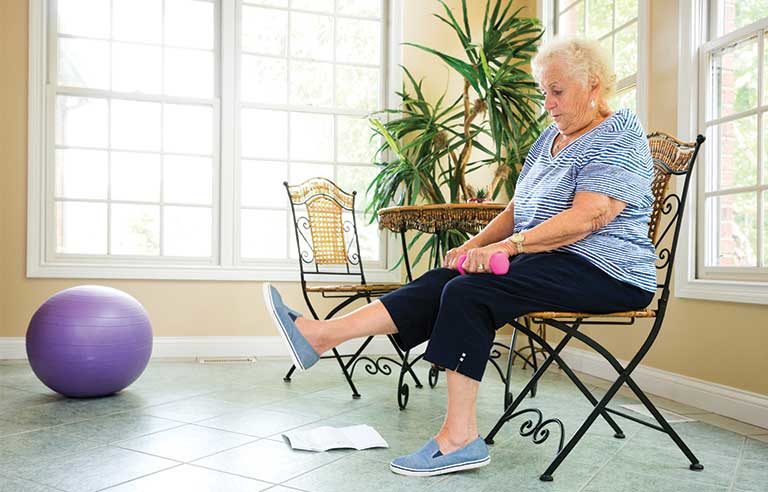Strength and balance programs can significantly reduce older adults’ risk of falling: study

Vancouver, British Columbia — Following an in-home exercise program may reduce at-risk older adults’ likelihood of falling by up to 36%, results of a recent study from the University of British Columbia indicate.
For the 12-month trial, researchers enlisted 344 adults at least 70 years old who were referred to a fall prevention clinic after experiencing a fall that resulted in a visit to a medical facility. The participants, who had a history of falls and symptoms of frailty and mobility limits, all received the usual care that consisted of fall prevention guidance, while half also took part in a strength and balance program.
The program consisted of a set of balance and resistance training exercises – using equipment such as free weights – at least three times a week in the participants’ homes. It was directed by a physical therapist, who prescribed exercises and made sure they were done properly.
In a follow-up after 338 days, the usual care group had experienced 366 falls while the exercise group had 236. As an additional benefit, participants in the exercise group showed improvement in some markers of cognitive function, according to a June 4 press release from UBC.
“When we think about falls, we often think about loss of muscle strength and poor balance,” Teresa Liu-Ambrose, a physical therapy professor at UBC and principal investigator of the Vancouver Coastal Health Research Institute, said in the release. “However, the ability to remain upright and not fall is also dependent on cognitive abilities – calculating how far to lift your foot to get over a curb, making a decision as to when to cross the road and paying attention to your physical environment while you are having a conversation.”
This study was published online June 4 in the Journal of the American Medical Association.
In a related study published the same day in JAMA, Dutch researchers found that fatal falls among older adults more than tripled in the United States from 2000 to 2016.
Post a comment to this article
Safety+Health welcomes comments that promote respectful dialogue. Please stay on topic. Comments that contain personal attacks, profanity or abusive language – or those aggressively promoting products or services – will be removed. We reserve the right to determine which comments violate our comment policy. (Anonymous comments are welcome; merely skip the “name” field in the comment box. An email address is required but will not be included with your comment.)
